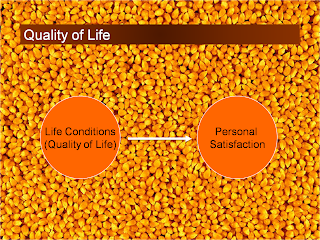This portion begins with the disciples reporting to Jesus all that happened – all that they had accomplished when they were sent out by Jesus. All this while they were with Jesus just watching him do stuff. Now it’s time for them to launch out. A training workshop had commenced, and they come back to Jesus with their success stories.
3 reasons for Jesus stressing on their need for rest1. They need physical rest.
2. They need to unwind from feelings of being superheroes
3. They could not talk without being interrupted by people dropping by to see them.
FOCUS: JESUS WANTS TO SPEND TIME WTH HIS DISCIPLES ("Come with me by yourselves to a quiet place and get some rest." ). One way to look at these passages is to let the disciples take centre stage.
Scene 1: Selfless Servants or SuperheroesWhat sort of Disciples is Jesus trying to raise?
Their plan of spending time with themselves does not work out.
‘But many who saw them leaving recognized them and ran on foot from all the towns and got there ahead of them.’ Their faith & desperation releases Jesus’ compassion and he begins to teach them. In spite of the interruption of his plans he still reaches out.
When it gets late, the disciples suggest that He dismiss the crowd so they can go and get something to eat. But, Jesus’ statement shocks them – ‘you give them something to eat’. Jesus is trying to get the disciples’ feet back on the ground after a successful mission of casting demons and healing sicknesses. What matters most in their mission is ‘people’ and not the stuff they can do. We are empowered supernaturally not to be superheroes but to be servants.
The passage also gives us insight into how the disciples failed to continue to look up to God to be their resource – the one who is bigger than them and who does the impossible!
Scene 2: The Storm that Stretched the Disciples a. They are tired and its late – the wind is against them. Jesus is just watching! About the fourth hour he goes to them walking on water. Interestingly “he intends to pass by them”.
It seems as if Jesus led them into the storm. The disciples had failed their test because they lacked spiritual insight and receptive hearts. The miracle of the loaves and fishes had made no lasting impression on them. After all, if Jesus could multiply food and feed thousands of people, then surely He could protect them in the storm.
What do you do, when you’re in a storm and you know that Jesus is there and he is just watching you? What do you do when you are alone in the midst of the storm and you know that Jesus is aware of what you are going through?
When you’re in a crisis? In stead of asking the question ‘why’?, we need to learn to ask‘what?’. We all know that “why?’ does not always have an answer. The question ‘why?’ often hardens your heart . Lets learn to ask God “what can I learn from the situation’ or What should I do in this situation?”. The answer may be ‘just stay still and trust me’ or ‘rise up to the occasion and calm the storm’
b. Jesus walks on water to prove to the disciples that He can. He can always do the impossible. What He does is to show that He is bigger than the storm. That is the important this to remember. God is bigger than any of your storms.
Why do they need to know this? Because He is going to send them out to do the impossible, too. He is going to commission these very ordinary men to go out and make disciples of all men in every land. Impossible! But they will accomplish the impossible.
c. Many times when we have exhausted our human strength we see God come in power. We solely rely on his enablement at those times probably more than @ other times when we are physically and emotionally strong. We have often seen that god shows up when we have exhausted all options in the natural.
d. The consolation at the end of the story is that Jesus does show up eventually when we need him and knows we can’t make it on our own. He will not pass us by. …. in fact there is no indication in the verses that the disciples were looking for Jesus, they were just striving on their own. Jesus still shows up. He goes to them –If it feels like he is not in the boat , remember that he is out there looking out for us. He will come to us even if we are not looking out for Him.







